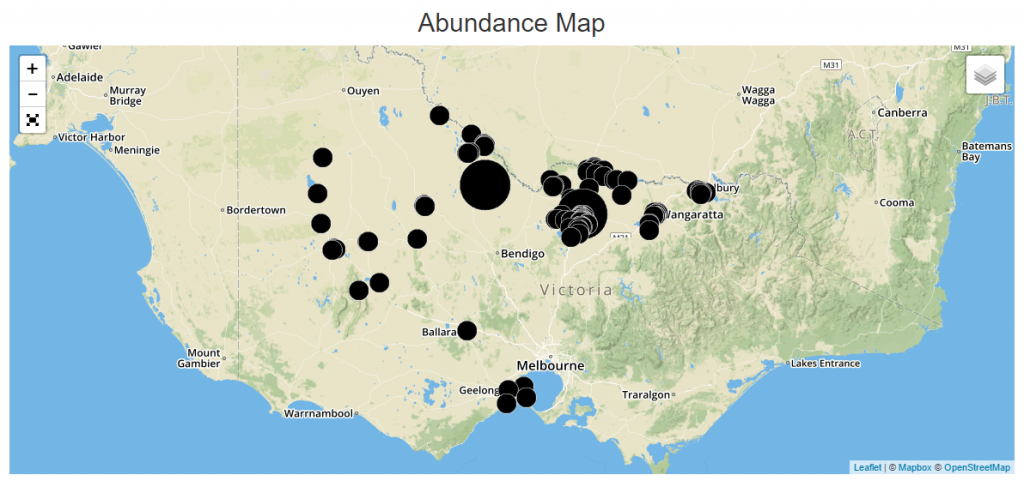As part of our previous work on the Atlas of Environmental Health, (such as our previous blog here) we have also been looking for ways to help feed more mosquito related data into the system; and to that end we have just started a new project to provide further support the lab team at the AgriBio facility at LaTrobe University. This is the team that does the virology and species identification work on the mosquitoes that are trapped by local government officers across Victoria.
This initial abundance map will soon be a lot more complex, with the data coming in to the system from the AgriBio team
This new project, which has started this week, will see the development of a tool to assist the AgriBio researchers to be able bulk load their historical data from standardised lab spreadsheets to the system. This will mean that they will be able to add in a lot (around 30 years worth!) of historical data on mosquito abundance – and disease prevalence – across Victoria.
This relatively small project for us will have a big impact on the system – we will likely have to scale up the instance of the software to handle the increased volume of data that will be appearing. Thankfully, as we run the system on Amazon Web Services cloud infrastructure, this will be a really simple process! Unlike physical servers in the office server room, cloud infrastructure is elastic and can be dialled up or down almost instantaneously to meet demand.
With this historical data entering the system, we can also start to review the opportunities for reporting that this provides. We’ve discussed all sorts of additional reports with the Victorian stakeholders in the Atlas, like heat maps and other specific trend or compliance reporting. Now with larger volumes of data there to start reviewing, we can start to plan ahead for that sort of functionality.
Meanwhile, the local governments will start to see a lot more data arriving in the system so that they can see the patterns of mosquito populations in their regions, which in itself is a great outcome in support of their operations and planning needs. If you want to know more about the Atlas, feel free to drop me an email, or call our Perth office on (08) 92277309 – or start a conversation with us on Facebook, Twitter or LinkedIn.
Chris


Comments are closed.